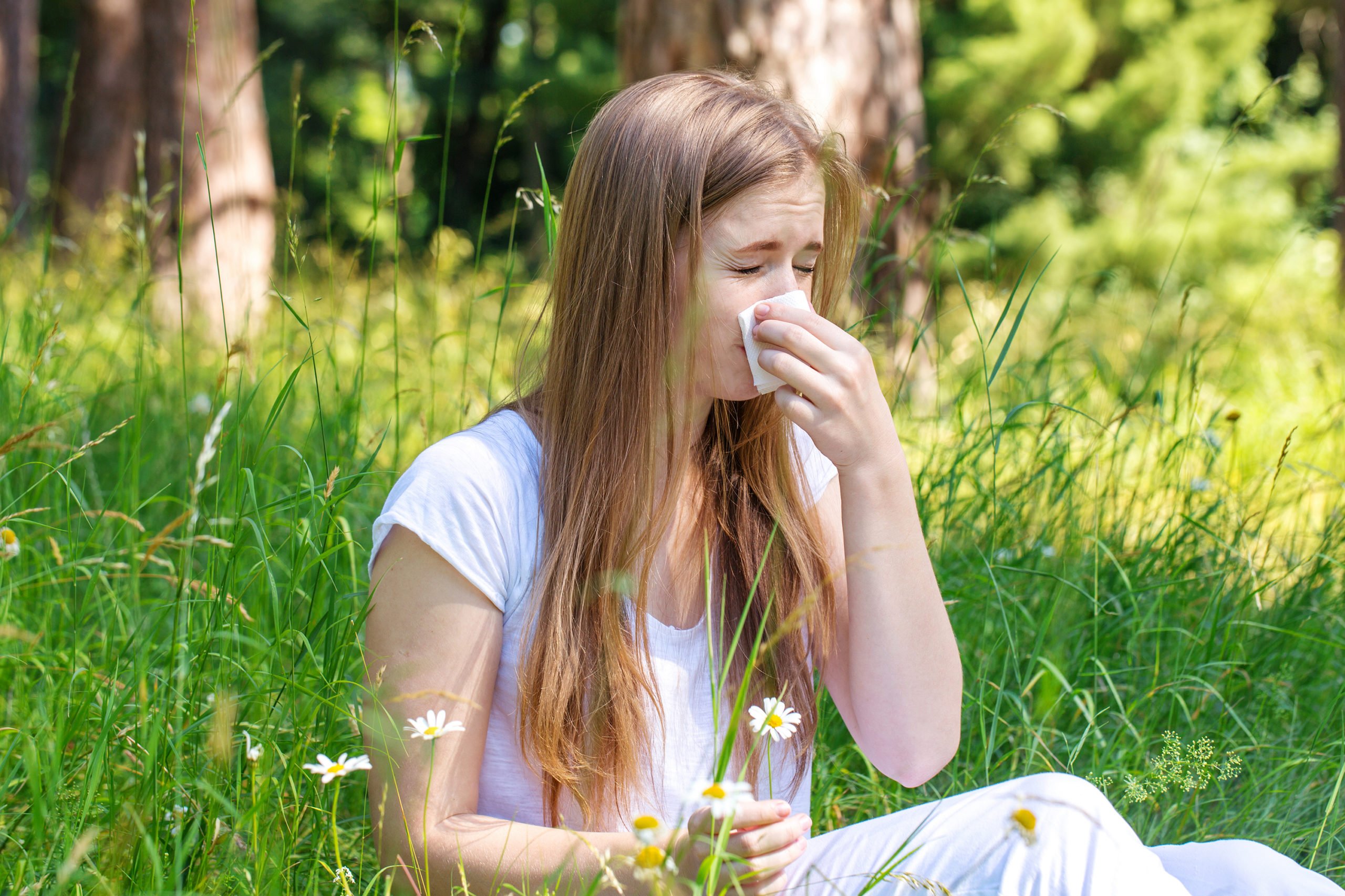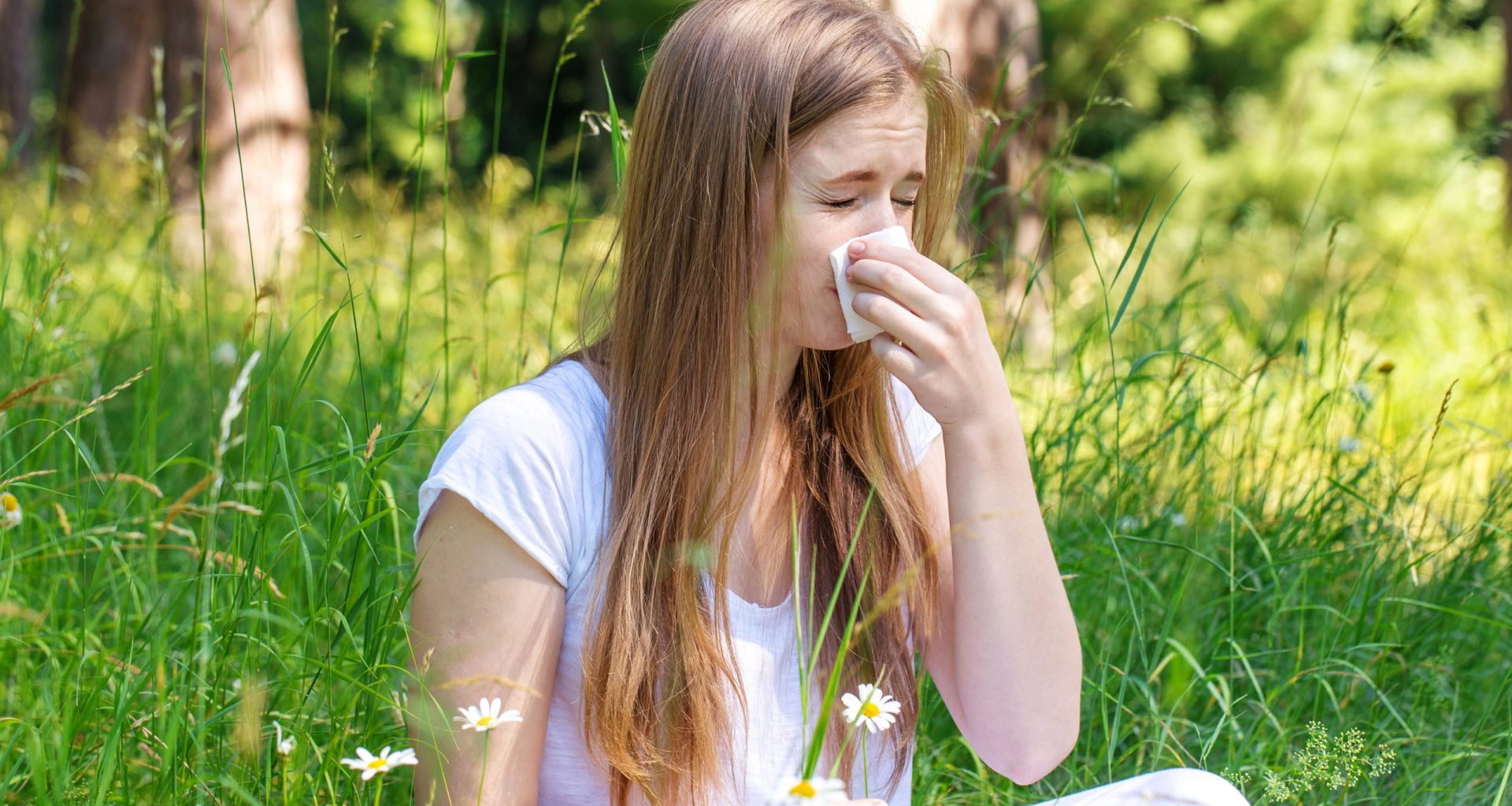What is Heuschnupfen?
Der Heuschnupfen – literally “hay cold” – is an allergy against pollen, most commonly that of grass pollen, which we know as hay fever.
In total, an estimated 12 million Germans suffer from hay fever every year – with children and adolescents the most acutely affected.
The most common symptoms include itchy eyes, runny nose and continual sneezing, as well as migraines in extreme cases. Those affected often complain of burning eyes and sometimes a burning sensation in the throat.
When do you experience Heuschnupfen in Germany?
Unfortunately, spring isn’t the only time hay fever sufferers are at risk – the late flowering plant ragweed blooms in Germany during the autumn season and causes similar symptoms to hay fever.
Pollen allergies are both seasonal and regional: Germany’s warmer regions experience pollen much earlier than in the coastal or mountain regions.
Plus, contrary to what you may believe, studies show that city dwellers are more frequently affected by pollen allergies in Germany than people from the countryside. Some scientists put it down to the fine dust pollution, which generally makes the nasal mucous membranes more sensitive. However, there is generally more pollen in the countryside air, with stronger allergic reactions occurring here.

Spring can be a difficult time for hay fever sufferers. Photo: picture alliance/dpa/Freepik.com | Dr. Jacobs Institut
How to cure Heuschnupfen?
There are many different types of treatments to alleviate the symptoms of hay fever, with the most popular being antihistamines, which can be bought in your local Apotheke (pharmacy).
Other non-medical remedies include nettle or ginger tea, citrus fruits, honey and elderflower juice.
Advertisement
Some habits that could further help are showering before bed, regular changing and washing of clothes, and, Germany’s favourite, lüften (ventilating/airing out a room) – although only at night, when pollen levels are at their lowest.
More Heuschnupfen for Germany to come
In recent years, due to high spring temperatures, Germany has experienced the highest levels of pollen in the air since the 1980’s. Experts warn that climate change will only worsen this trend, as higher temperatures allow plants to bloom earlier and higher concentrations of carbon dioxide can increase pollen production.
And with dry, warm days ahead for Germany, those who typically suffer from Heuschnupfen may have to prepare for an allergy filled season.
Examples:
Jedes Frühjahr leide ich an Heuschnupfen.
Every spring I suffer from hay fever.
Ich habe das Gefühl, dass dieses Jahr besonders viele Pollen in der Luft sind, denn mein Heuschnupfen ist besonders schlimm.
I feel like there is a lot of pollen in the air this year because my hay fever is particularly bad.
Read More: World News | Entertainment News | Celeb News
Locals










